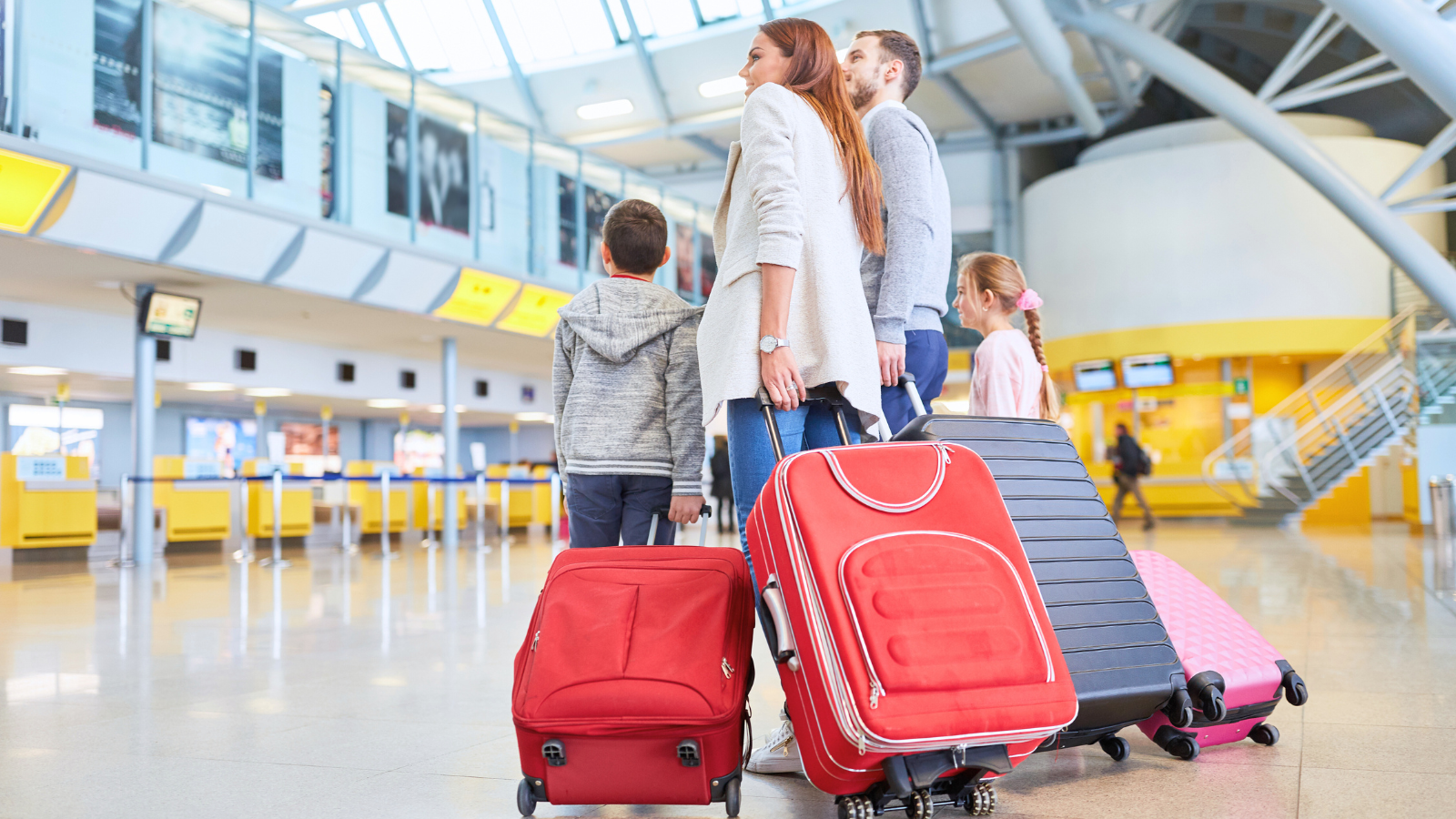Travel Health: Understanding And Preventing Measles

Welcome to your ultimate source for breaking news, trending updates, and in-depth stories from around the world. Whether it's politics, technology, entertainment, sports, or lifestyle, we bring you real-time updates that keep you informed and ahead of the curve.
Our team works tirelessly to ensure you never miss a moment. From the latest developments in global events to the most talked-about topics on social media, our news platform is designed to deliver accurate and timely information, all in one place.
Stay in the know and join thousands of readers who trust us for reliable, up-to-date content. Explore our expertly curated articles and dive deeper into the stories that matter to you. Visit Best Website now and be part of the conversation. Don't miss out on the headlines that shape our world!
Table of Contents
Travel Health: Understanding and Preventing Measles
Measles, a highly contagious viral illness, remains a significant global health concern, particularly for travelers venturing into regions with lower vaccination rates. Understanding the risks and implementing preventative measures is crucial for a safe and healthy trip. This article explores measles, its symptoms, transmission, prevention, and what to do if you suspect infection.
What is Measles?
Measles (also known as rubeola) is a serious respiratory illness caused by the measles virus. It's characterized by a distinctive rash, high fever, cough, runny nose, and inflamed eyes (conjunctivitis). While often considered a childhood illness, measles can affect people of all ages, particularly those unvaccinated or with weakened immune systems. The severity of the illness can range from mild to life-threatening, with complications including pneumonia, encephalitis (brain swelling), and even death.
How is Measles Spread?
Measles spreads easily through the air through respiratory droplets produced when an infected person coughs or sneezes. The virus can remain infectious in the air for up to two hours after an infected person has left the area. This makes it highly contagious, especially in crowded environments like airplanes or public transportation. Direct contact with respiratory secretions is another route of transmission.
Symptoms of Measles:
Recognizing the symptoms of measles is vital for early intervention. The typical progression includes:
- Initial Symptoms: High fever, cough, runny nose, and conjunctivitis (red, watery eyes). These symptoms typically appear 7-14 days after infection.
- Koplik's Spots: Small, white spots with bluish-white centers inside the mouth, often appearing on the inner lining of the cheek. These are a hallmark sign of measles, though not always present.
- Rash: A characteristic red, blotchy rash usually appears on the face and spreads downward to the body. The rash can be itchy and last for several days.
Preventing Measles: Vaccination is Key
The most effective way to prevent measles is through vaccination. The MMR (measles, mumps, and rubella) vaccine is highly effective and generally safe. The CDC recommends two doses of the MMR vaccine for optimal protection.
Other Preventive Measures:
While vaccination is the primary defense, other measures can help reduce your risk:
- Check Vaccination Status: Before traveling, ensure your MMR vaccination is up-to-date. Consult your doctor if you need booster shots.
- Research Your Destination: Check the Centers for Disease Control and Prevention (CDC) website for travel advisories and recommendations regarding measles outbreaks in your destination country.
- Practice Good Hygiene: Frequent handwashing, covering coughs and sneezes, and avoiding close contact with sick individuals can help limit exposure to the virus.
What to Do if You Suspect Measles:
If you develop symptoms consistent with measles, seek medical attention immediately. Early diagnosis and treatment can help prevent complications. Inform your healthcare provider about your recent travel history.
Conclusion:
Measles remains a preventable disease. By understanding the risks, getting vaccinated, and practicing good hygiene, travelers can significantly reduce their chances of contracting this serious illness. Prioritizing travel health ensures a safe and enjoyable trip. Remember to consult your doctor for personalized travel health advice before your journey. Safe travels!

Thank you for visiting our website, your trusted source for the latest updates and in-depth coverage on Travel Health: Understanding And Preventing Measles. We're committed to keeping you informed with timely and accurate information to meet your curiosity and needs.
If you have any questions, suggestions, or feedback, we'd love to hear from you. Your insights are valuable to us and help us improve to serve you better. Feel free to reach out through our contact page.
Don't forget to bookmark our website and check back regularly for the latest headlines and trending topics. See you next time, and thank you for being part of our growing community!
Featured Posts
-
 Revive La Experiencia Aldo De Nigris En Exatlon Estados Unidos Fotos Exclusivas
Aug 16, 2025
Revive La Experiencia Aldo De Nigris En Exatlon Estados Unidos Fotos Exclusivas
Aug 16, 2025 -
 Jamie Mc Murrays Unfiltered Truth The Regret That Haunts His Nascar Legacy
Aug 16, 2025
Jamie Mc Murrays Unfiltered Truth The Regret That Haunts His Nascar Legacy
Aug 16, 2025 -
 New Orleans Saints Make Roster Changes Martin Signed Dekkers Released
Aug 16, 2025
New Orleans Saints Make Roster Changes Martin Signed Dekkers Released
Aug 16, 2025 -
 45 Rise In Measles Cases In South Korea The Impact Of Global Travel
Aug 16, 2025
45 Rise In Measles Cases In South Korea The Impact Of Global Travel
Aug 16, 2025 -
 The Untold Story Of Malin Akerman And Jack Donnellys Relationship
Aug 16, 2025
The Untold Story Of Malin Akerman And Jack Donnellys Relationship
Aug 16, 2025
Latest Posts
-
 Adorable Photo Alexandra Daddarios Sons Hercules Like Features
Aug 17, 2025
Adorable Photo Alexandra Daddarios Sons Hercules Like Features
Aug 17, 2025 -
 Jaguars Travis Hunters Status Uncertain After Missing Practice With Injury
Aug 17, 2025
Jaguars Travis Hunters Status Uncertain After Missing Practice With Injury
Aug 17, 2025 -
 Wnba Stars Ranked Nba 2 K26s Top 10 Player Ratings Featuring Caitlin Clark And Angel Reese
Aug 17, 2025
Wnba Stars Ranked Nba 2 K26s Top 10 Player Ratings Featuring Caitlin Clark And Angel Reese
Aug 17, 2025 -
 De Chambeaus Future Pga Tour Announcement On Ryder Cup Participation
Aug 17, 2025
De Chambeaus Future Pga Tour Announcement On Ryder Cup Participation
Aug 17, 2025 -
 Viral Videos Expose Hundreds Of Bikers Reckless Highway Riding In Massachusetts
Aug 17, 2025
Viral Videos Expose Hundreds Of Bikers Reckless Highway Riding In Massachusetts
Aug 17, 2025
